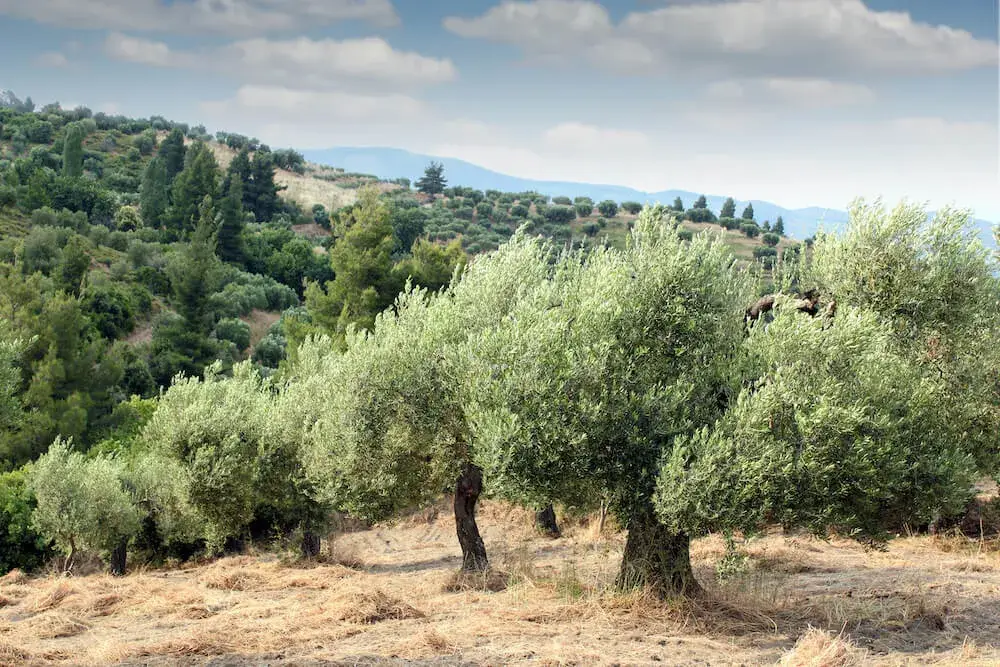Olive Oil in Morocco: An Everyday Essential

Morocco’s olive oil is a treasure of its agricultural heritage, deeply rooted in the country’s culture and cuisine. Spanning lush regions like Meknes, Ouazzane and Beni Mellal, olive groves produce some of the finest oils in the world, celebrated for their quality and flavor. The olive harvest, typically from November to February, is a time of both hard work and tradition, with olives carefully handpicked and cold-pressed.
History and Culture of Olive Oil in Morocco
The history of olive oil in Morocco spans centuries, beginning with the Phoenicians and flourishing under Roman influence. Evidence of this rich tradition can still be seen today in Volubilis, where the ruins of ancient olive oil mills demonstrate traditional methods of production, including presses once powered by donkeys. Olive oil remains deeply embedded in Moroccan culture, symbolizing hospitality and heritage. Beyond its culinary uses, it reflects the country’s agricultural roots, with techniques passed down through generations to preserve this enduring legacy.
What Makes Moroccan Olive Oil Special?
The Mediterranean climate and fertile soils give Moroccan olive oil its rich taste and health benefits. Known for being high in antioxidants and healthy fats, it’s a staple in Moroccan households. The flavors range from mild and buttery to bold and peppery, catering to all preferences.
Uses of Olive Oil in Moroccan Cuisine
Olive oil is a cornerstone of Moroccan cuisine, elevating dishes with its rich flavor and versatility. At breakfast, locals enjoy it drizzled over fresh bread alongside honey or mixed with olives for a simple yet delicious dip. It’s also a key ingredient in iconic dishes like vegetable tagines, where it adds depth and enhances the natural flavors of the ingredients. Moroccans serve olive oil as a gesture of hospitality, making it a key feature of the dining experience..
What Are the Uses for Olive Oil?
Moroccan olive oil isn’t just for cooking—it’s a versatile natural remedy with numerous benefits. It’s a key ingredient in skincare routines, providing deep hydration for the skin and helping to repair damaged hair, leaving it shiny and nourished. Olive oil is also believed to support lung health, as its anti-inflammatory properties may ease breathing issues. In traditional medicine, it’s used to aid digestion, relieve joint pain, and strengthen overall well-being. Its uses extend to cosmetic products, handmade soaps, and even oil lamps in rural areas, showcasing its multifaceted value.
How to Check the Quality of Olive Oil
When selecting olive oil, look for “extra virgin” on the label, which signifies the highest quality. A good olive oil should have a fresh, fruity aroma and a taste that’s rich but not overly bitter. Authentic oils are typically stored in dark glass bottles to protect them from light and preserve their flavor. Avoid oils that taste flat or rancid, as they might be old or low-grade.
The Global Recognition of Moroccan Olive Oil
Moroccan olive oil is earning accolades internationally, with many brands winning awards for their superior quality. Morocco’s focus on artisanal and organic olive oils highlights its commitment to preserving traditional, sustainable farming practices.
Visiting Olive Mills in Morocco
For travelers, visiting an olive farm or mill is an enriching experience. You can learn about traditional pressing methods and sample freshly made oils. Meknes and region is an excellent place to explore this tradition firsthand.
Get the taste of Morocco
Morocco’s olive oil is more than just a culinary delight; it’s a symbol of the country’s deep connection to its land and traditions. Whether used in cooking, skincare, or as a gift, it truly embodies the essence of Moroccan culture. If you’re interested in buying olive oil and need the assistance of a Local Advisor in Morocco, feel free to contact me.











